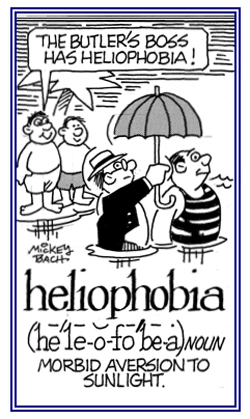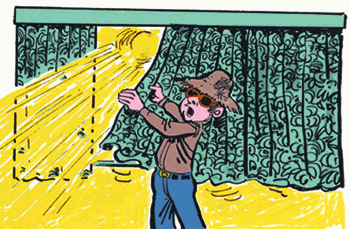phobo-, phob-, -phobia, -phobias, -phobe, -phobiac, -phobist, -phobic, -phobism, -phobous
(Greek: fear, extreme fear of; morbid, excessive, irrational fear, or terror of something or someone; however, sometimes this Greek element also means a strong dislike, dread, or hatred for something or someone)
For more details about the various phobias, visit this Phobias Introduction page to see Phobia Variations Defined and Explained.
There are only two forces that unite men: fear and self-interest.
See "hemaphobia" for all forms of this word group.
When dealing with the problem of halitosis or with the halitosis patient, it is important to distinguish between "genuine halitosis" and "pseudo-halitosis".
"Genuine halitosis" can be verified when the breath malodor is an actual problem that can be easily diagnosed either by organoleptic or by physic-chemical processes. "Pseudo-halitosis" exists when the oral malodor does not exist, although the patient is convinced that he or she has it.
If, after successful treatment for either genuine halitosis or pseudo-halitosis, the patient still believes that he or she has halitosis, then the diagnosis is termed halitophobia.
This simple classification system includes corresponding treatment requirements and allows the clinician to differentiate between a pathological and a psychological condition.
But who can tell the end of what we fear?

Go to this Word A Day Revisited Index
so you can see more of Mickey Bach's cartoons.



